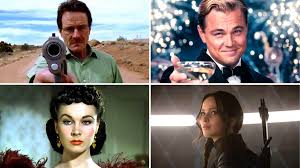From Flawed to Fascinating: The Power of Imperfect Protagonists in Modern Storytelling
The Allure of Imperfect Heroes
Protagonists are generally considered the heart of a story. These protagonists have typically been presented as heroes with qualities to admire bravery, astuteness, absolute morality. But whether you are talking films or novels, contemporary storytelling has embraced a different kind of protagonist: the flawed hero. Such characters are very human and thus, weak, imperfect and floundering with their inner battles in ways that make them more relatable, complex and interesting.
In recent years, flawed protagonists have become a fashionable way to create stories that draw in viewer with their vulnerability and authenticity. But what makes these flawed characters so compelling? Why are their problematic natures more appealing than the perfect heroes of old?
This article dives into the appeal of imperfect protagonists, how their imperfections add to their journeys, how they mirror the complexities of real human beings, and why people are still intrigued by characters that are far from perfect.
The Rise of the Imperfect Protagonist
And this is not like old-school storytelling.
This shift from idealized heroes to more flawed, complex characters can be seen in response to changed societal attitudes and the evolution of storytelling. When we think of heroes in the past (like pre-2020), they were generally depicted as paragons of virtue, exemplifying qualities such as courage, selflessness, and moral clarity. These characters were easy to root for because they were thought of as unattainable ideals — people to look up to, or even emulate.
However, as society became more aware of the complexities of human nature, the demand for more nuanced and realistic characters grew. Viewers and readers began to seek out stories that reflected the struggles and imperfections of real people. The flawed protagonist emerged as a powerful tool to explore human nature and engage audiences on a deeper level.
The Appeal of Imperfection
They are relatable because they reflect the struggles of our lives, the doubts and conflicts that we face in our own lives, often. These characters can have good intentions but also be deeply imperfect, themselves making decisions that are morally questionable or self-destructive. Additionally, their flaws give them a more human quality, making their own growth through the story a reflection of the audience’s own self discovery and growth.
What Makes Flawed Protagonists Fascinating?
1. Relatability and Emotional Connection
A major reason flawed protagonists are are so compelling is the familiarity that they share with their audience. No one is perfect in real life, we all have our foibles and contradictions. Struggling with quirkiness as part of the defining trait of a protagonist make it easier for us to put ourselves in their shoes. Whether it be with fighting their insecurities, coping with past trauma, or making mistakes, we relate to characters who go through what we do.
A classic example of this is Walter White from the TV series Breaking Bad; a high-school chemistry teacher that initially had good intentions to support his family, but became an immoral drug lord; is a prime example of such a character. His reasons are sympathetic, but it’s harder to justify what he does. We empathize, maybe even relate, but it gets tricky and is compelling.
2. Character Growth and Transformation
In a story, flawed protagonists will usually show some kind of character development. Their blemishes give them a foundation to grow, so it is gratifying and gratifying to see them conquer their deficiencies.” This transformation is one of the most powerful elements of stories about imperfect heroes.
Consider the character of Tony Stark in the Iron Man series. Initially portrayed as a selfish, arrogant billionaire, Tony’s journey from self-centered playboy to self-sacrificing hero showcases a profound transformation. His flaws, particularly his ego and lack of empathy, create obstacles he must overcome to become a true hero. His evolution is deeply satisfying because we see a man confront and change his own flaws.
3. Moral Ambiguity and Complexity
Flawed protagonists tend to operate in morally grey areas, which can make them more complex and therefore interesting. These characters aren’t always making the right choices — their actions can be controversial, even ethically questionable. And indeed, these decisions frequently introduce weighty moral dilemmas and invite the viewer/reader into the narrative in profound ways.
In The Godfather for example, Michael Corleone’s descent into organized crime is rife with moral ambiguity. His bloody actions are motivated by the desire to protect his family. These things lead the audience to question the root of loyalty and power, and justice, which makes the story so much more interesting.
4. Vulnerability and Authenticity
At the same time, imperfection in a protagonist often goes hand in hand with vulnerability, and vulnerability is what can make a character feel real. Vulnerable characters reveal their fears, insecurities and flaws, which can make them lovable to audiences. Their flaws make them feel like real people, rather than idealized beings, and this authenticity is essential to build a bond.
Perhaps one of the best examples of this is The Pursuit of Happyness, in which Will Smith plays a struggling salesman doing his best to give his son a better life. His stubbornness to keep going in the face of insurmountable obstacles and his failings as a husband and father — in the early going, when he can’t find a job to provide for his family at all — make him such a sympathetic character and humanize him in a way that makes his eventual success, when it comes, all the more rewarding.
How Imperfect Protagonists Reflect Real-Life Struggles
Flawed protagonists are also reflections of real-life struggles. Life is about overcoming hurdles, many of which you fall or trip over, and continue to face over the years. Imperfect characters reflect the spirit and struggle to thrive through struggle and suffering.
For example, Elizabeth Bennet in Pride and Prejudice is proud and prejudiced at first, making quick judgments about people based on superficial impression.
Throughout much of the novel, Elizabeth struggles to recognize her own prejudice and begin to see the truth. This parallels our own journey of self-discovery, which makes her character both approachable and encouraging.
Likewise, the protagonist of The Catcher in the Rye suffers from depression and alienation, despite being in his youth: Holden Caulfield. His flaws cynicism, immaturity, and emotional instability are laid bare for the reader to see. Yet, his raw emotionality and search for meaning resonate with anyone who has felt lost or misunderstood.
The Role of Imperfect Protagonists in Modern Media
1. The Changing Landscape of Film and Television
The portrayal of flawed protagonists has become more prominent in modern film and television. Shows like Mad Men, The Sopranos, and Dexter have all introduced protagonists whose imperfections are integral to their stories. These characters are not straightforward heroes but morally complex individuals who challenge our perceptions of right and wrong.
This trend has made its way to cinema, as well consider someone like the joker in The Dark Knight or Maximus in Gladiator, who finds themselves, for better or worse, as a pseudo-hero. These films are often more engaging, though, because they allow the audience to explore the complexities of humanity.
2. Flawed Protagonists in Literature
Flawed protagonists have existed throughout the ages in literature, from the tragic idealist of Shakespearean plays to more askew literary antiheroes such as Holden Caulfield or Gatsby in The Great Gatsby. This is true even if the character is not technically human; in fact, it is often true when the character is not human, as they might represent the struggles of the human condition in a way that makes their story feel universal.
The allure of flawed protagonists in literature is also a testament to the enduring appeal of human complexity. As long as there are humans, there will also be interest in characters who reflect our own failings and complexities.
Why We Love Imperfect Protagonists
Imperfect heroes take the world for what it is and the people in it for who they are: flawed, complicated, churning through a tumult of feelings. They are not perfect, but very real, relatable, and capable of growth. Their flaws, in fact, make them more interesting, their emotional journeys more poignant and their stories more significant.
In a world that increasingly prioritizes authenticity over perfection, the flawed protagonist has come to stay. As storytellers dive deeper into the human experience, imperfect characters will help drive the most compelling
FAQ: From Flawed to Fascinating: The Power of Imperfect Protagonists
1. Why are flawed protagonists more interesting than perfect ones?
Flawed protagonists are more interesting because they reflect real human experiences, including struggles, mistakes, and growth. Their imperfections make them relatable and provide a deeper emotional connection with the audience.
2. Can a protagonist still be considered a hero if they are flawed?
Yes, a protagonist can still be a hero despite their flaws. In fact, their imperfections often make their hero’s journey more powerful, as they overcome personal obstacles and grow as individuals.
3. Are flawed protagonists more common in modern storytelling?
Yes, flawed protagonists have become increasingly common in modern storytelling, particularly in films, TV shows, and literature. Audiences are drawn to characters who reflect the complexities and imperfections of real life.
4. How do flawed protagonists contribute to character development?
Flawed protagonists often undergo significant character development as they confront their imperfections and learn from their mistakes. This growth makes for a more compelling and satisfying narrative.
5. What are some examples of flawed protagonists in popular media?
Some notable examples of flawed protagonists include Walter White from Breaking Bad, Tony Stark from Iron Man, and Holden Caulfield from The Catcher in the Rye. These characters’ flaws are central to their stories and contribute to their complexity.


